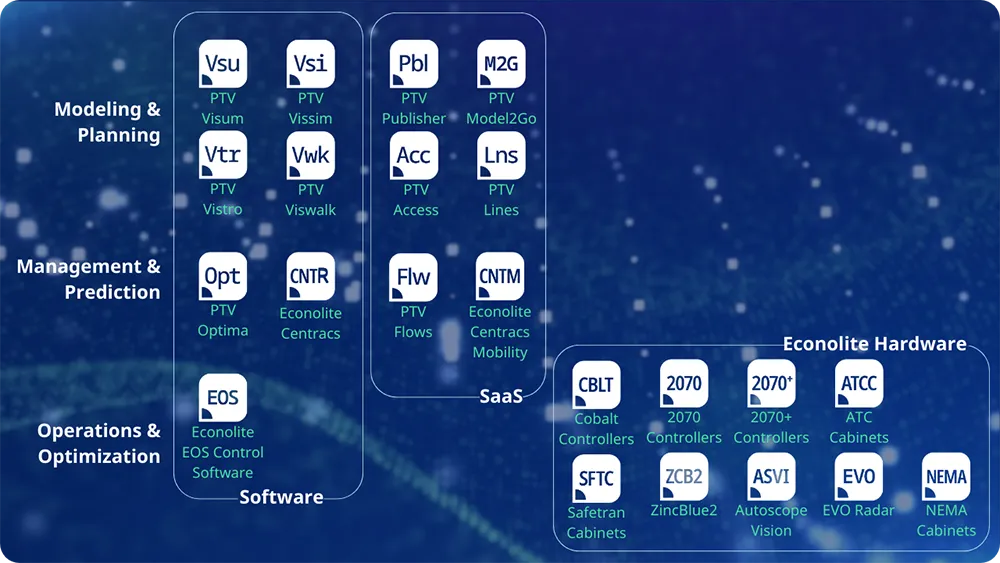In cooperation with the City of Karlsruhe, Germany,
From real-time solutions for traffic and transport planning to new, need-based mobility services (Mobility as a Service), the company hopes that the mobility lab will make a contribution to developing Karlsruhe into a smart city and enable future-oriented solutions to be developed for other cities.
The heart of the Mobility Lab is the Karlsruhe traffic management system based on PTV Optima software. In this system, based on a down-to-the-hour transport model of the city of Karlsruhe, the PTV online detector data is provided with the traffic planning software. It comes from the
Action scenarios can also be developed in the Mobility Lab to react to various incidents, by changing the service offerings, or adjusting traffic signal programs or coordinating them to provide a ‘green wave’. The switching of variable message signs and the influencing of traffic demand through messages on the radio, internet or in navigation systems can also be modelled, while the effects of various scenarios can be simulated online in order to select the best course of action.
PTV Group opens Mobility Lab
In cooperation with the City of Karlsruhe, Germany, PTV Group has established a Mobility Lab, where various traffic planning and model solutions will be linked to one another and to other solutions in order to try out new ideas and approaches as well as their effects on cities and regions worldwide.
June 26, 2017
Read time: 2 mins








